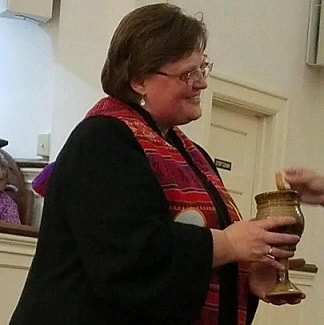|
Prayer Requests:
Prayers for the families and individuals that lost everything in the Ashwood Apartments fire (over 100 families). Our member Angela Stofflet knows to of the families. We would love to help those two families out. Please consider donating gift cards to Target, Walmart, CVS, etc. One is staying with a friend, another is for a limited time in a hotel. We would love to help these two families. Prayers of thanksgiving that John Godfrey; he is feeling "great" and better than in a long time. However, also prayers for the entire family as they wait for Jonah to have an appointment with a cardiologist after an episode last week. Prayers for Todd who has to undergo a medical procedure at the hospital on Wednesday and for other medical concerns. Continued prayers for Bev and her sister Joanne and the entire family. Bev is with Joanne at this time. Prayers for the hurricane victims in Puerto Rico. WORSHIP SERVICE WILL UPLOAD SHORTLY. It is currently being converted and downloaded.
1 Comment
The video below was recorded in my office at church. I tried to record it in the sanctuary but the sound was not great when done with a cellphone. I have to admit - I absolutely dislike video - even more so than audio recording myself. Being recorded makes me feel funny and so I am asking for grace - a lot of grace - for the apparent awkwardness. (and the two typos in the video that I can't fix "after the fact". Thank you! Blessings, Pastor Suzanne Matthew 6:1-18 Contemporary Interpretation (Compiled and edited using The Message, Common English Bible, and The Story)Matthew 6:1-18 Contemporary Interpretation Please don’t practice your religion in front of people, making a performance of it to draw their attention. It might make for good theater, but the God who made you won’t be applauding. “When you do something for someone else, to help them out, don’t call attention to yourself. Don’t be like those who treat prayer meetings and street corners alike as a stage, acting compassionate if someone is watching. They are just playing to the crowds. They get applause, true, but that’s all they get. When you help someone out, don’t think about how it looks. Just do it—quietly and unobtrusively. That is the way your God, who conceived you in love, working behind the scenes, helps you out. “And when you come before God – meaning when you pray - don’t turn THAT into a theatrical production either. All these people making a regular show out of their prayers, hoping for stardom! In all seriousness - God doesn’t sit in a box seat just ready to applaud you. “Here’s what I want you to do: Find a quiet, secluded place so you won’t even be tempted to role-play before God. Just be there as simply and honestly as you can manage. The focus will shift from you to God, and you will begin to sense God’s presence and grace. “The world is full of so-called prayer warriors and books that tell you how to pray. Don’t listen to them. Yes, they can be helpful, but you don’t need all those formulas and programs and advice. And you don’t need to learn any new techniques for getting what you want from God. Don’t fall for that nonsense. This is your holy parent that you are dealing with, and God knows better than you what you need. God knows it even before you every say it, but God still loves to hear you! With a God like this loving you, you can pray very simply. Like this: Our Mother and Father in heaven, Reveal who you are. Set the world right; Do what’s best-- as above, so below. Keep us alive with three square meals a day – no more, no less. Keep us forgiven with you and forgiving others. Keep us safe from ourselves and the Devil. You are in charge! Let Your kingdom be, and let it be powerful and glorious forever. Make it so ! “In prayer there is a connection between what God does and what you do. You will never truly know the forgiveness of God if you don’t also forgive others. If you refuse to do your part, you cut yourself off from experiencing God’s forgiveness – not because God doesn’t grant it, but because you won’t even recognize it. “When you practice a spiritual disciple that makes you abstain or fast from something, do not announce it loudly but just do it. Nobody needs to know what you are doing – it is between you and God. Showing off whatever it is that you are doing might make you look good to some people, but it won’t make you a saint. In short: If you ‘go into training’ inwardly, act normal outwardly. Shampoo and comb your hair, brush your teeth, wash your face. Smile. God doesn’t require attention-getting devices. All that matters is that God won’t overlook what you are doing; God will take notice and will look kindly upon you. Psalm 121I raise my eyes toward the mountains.
Where will my help come from? 2 My help comes from the Lord, the maker of heaven and earth. 3 God won’t let your foot slip. Your protector won’t fall asleep on the job. 4 No! Israel’s protector never sleeps or rests! 5 The Lord is your protector; the Lord is your shade right beside you. 6 The sun won’t strike you during the day; neither will the moon at night. 7 The Lord will protect you from all evil; God will protect your very life.[a] 8 The Lord will protect you on your journeys-- whether going or coming-- from now until forever from now. |
Current Worship BulletinCopyright & Recording/Streaming NoticeMusic used in worship services that is not in public domain has been copied, recorded, podcasted, and/or streamed using the following licenses:
ONE LICENSE A-729543 CCLI Copyright License 20805891 CCLI Streaming License 20805884 ONLINE WORSHIPWorship is normally live streamed at https://www.facebook.com/TrinityUCCCollegeville
Worship BulletinAuthorPastor Suzanne Schwarz-Green is the pastor of Trinity Reformed Church, UCC, in Collegeville, PA. Archives
October 2022
Categories |
 Like Us on Facebookwww.facebook.com/TrinityUCCCollegeville
Like Us on Facebookwww.facebook.com/TrinityUCCCollegeville
 Email trinityucc1854@verizon.netUs
Email trinityucc1854@verizon.netUs
Proudly powered by Weebly





 RSS Feed
RSS Feed